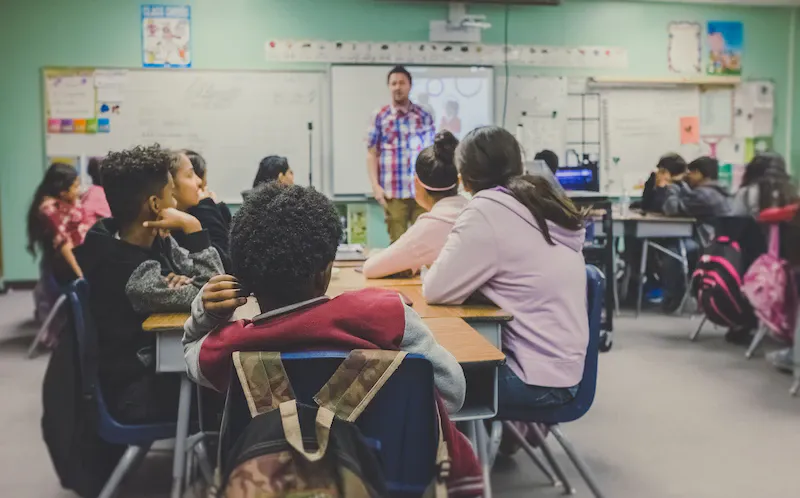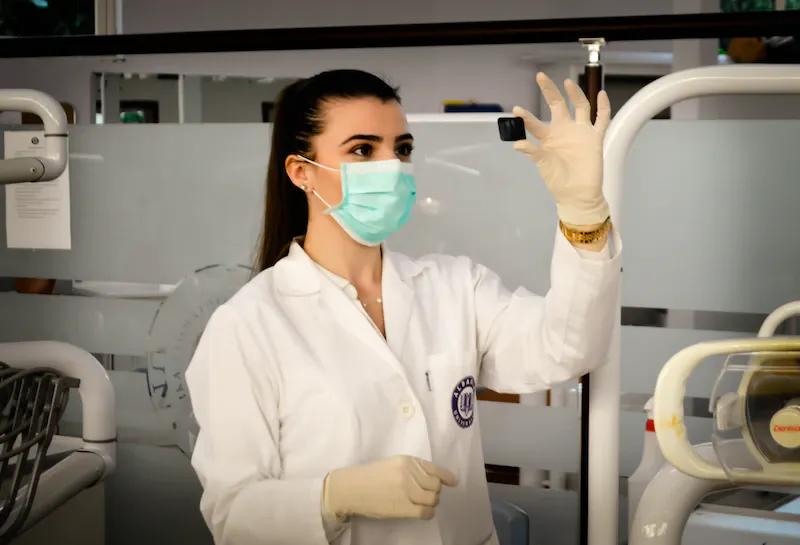Raising Confident Kids in a Sexually Charged World: A Guide for Parents

The Challenges of Raising Kids in a Sex-Saturated Culture
Raising children in a world where sex is everywhere can be a challenging experience for parents. From explicit content on television to social media and online pornography, children are exposed to sexual images and messages at an increasingly younger age. Parents must find a way to navigate these challenges and help their children develop a healthy understanding of sex and relationships.
One of the main challenges parents face is how to have open and honest conversations about sex with their children. Parents may feel uncomfortable or embarrassed discussing sex with their children, but it is crucial to do so. By having open and honest conversations about sex, parents can help their children understand what healthy relationships look like and teach them about consent.
Another challenge parents face is monitoring their children’s media consumption. With the rise of social media and easy access to online pornography, children can be exposed to sexual content without their parents even knowing. It is important for parents to monitor their children’s media consumption and set boundaries on what is and is not appropriate.
Finally, parents must be aware of the messages their children receive from the media and popular culture. From advertisements to music videos, popular culture often portrays sex in a way that is unrealistic and unhealthy. It is essential for parents to counter these messages with their own values and beliefs about sex and relationships.
In conclusion, raising children in a sex-saturated culture is not an easy task. Parents must be proactive in having open and honest conversations about sex, monitoring their children’s media consumption, and countering the messages they receive from popular culture. By doing so, parents can help their children develop a healthy understanding of sex and relationships that will serve them well throughout their lives.
The importance of talking to kids about sex and sexuality
One of the best ways to prepare your child to navigate the sexualized world is by talking to them about sex and sexuality. This conversation should not be a one-time event but rather an ongoing dialogue. Here are some key points to keep in mind when talking to your child about sex:
- Start early: It’s never too early to start talking to your child about sex. In fact, it’s important to start the conversation when they are young so that they have a solid foundation of knowledge and can build on it as they grow older.
- Use age-appropriate language: Use language that is appropriate for your child’s age and level of understanding. Be clear and concise, and avoid using euphemisms that may confuse your child.
- Be open and honest: Be open and honest with your child, even if it feels uncomfortable. Answer their questions truthfully and encourage them to come to you with any questions they may have.
- Talk about consent: Teach your child about the importance of consent and respect for others. Help them understand that they have the right to say no to any unwanted physical contact.
- Be a role model: Your actions speak louder than your words. Be a positive role model for your child by modeling healthy behaviors and attitudes towards sex and relationships.
In the video, the speaker emphasized the importance of starting the conversation early and using age-appropriate language when talking to your child about sex. They also stressed the importance of being open and honest with your child and creating a safe space for them to ask questions. Finally, the speaker highlighted the importance of teaching your child about consent and being a positive role model for them.
The cultural promiscuity and prudish communication leading to sexual shame
Despite the increasing sexualization of our culture, talking about sex and sexuality is still taboo for many families. This leads to a lack of understanding and communication between parents and children, which in turn can cause sexual shame and confusion.
On one hand, society promotes sexual promiscuity through media and advertising. On the other hand, we often avoid discussing sex with our kids, which can lead to a sense of shame and embarrassment around the topic. This can cause children to seek information from unreliable sources or to internalize negative messages about sexuality.
In addition, many parents struggle with discussing sexual issues because of their own discomfort with the topic. However, avoiding the conversation can do more harm than good. Kids need accurate information about sex and relationships to make informed choices and develop healthy attitudes toward their bodies.
The video stresses the importance of creating an open and safe environment for kids to discuss sex and sexuality. It also encourages parents to be honest about their own experiences and feelings around the topic, in order to model healthy communication and reduce the sense of shame that can arise. By having open and honest discussions about sex, parents can help their children feel more confident and enabled in their relationships and sexual lives.
The Need to Provide Kids with Scientific Words and Language About Sex
In addition to normalizing conversations about sex and sexuality, it is also important to provide kids with accurate and scientific words and language to talk about sex. Using euphemisms or slang terms can lead to confusion and misunderstandings. It’s essential to teach children the correct names for body parts and functions, so they can communicate effectively and feel confident about their bodies.
Studies have shown that using scientific language when talking about sex can have a positive impact on children’s sexual development. It can help them develop a more positive and healthy attitude towards sex, as well as reducing the risk of sexual abuse or exploitation.
During her talk, the speaker emphasized the importance of teaching children about anatomy and physiology in an age-appropriate manner. She recommended using books, diagrams, and other visual aids to help explain complex concepts. By providing kids with accurate and accessible information, we can help them build a strong foundation for healthy sexual development.
It’s important to note that this is not a one-time conversation, but an ongoing process of learning and exploration. Parents and caregivers should be prepared to answer children’s questions as they arise, and provide additional resources as needed. By giving children the tools and knowledge they need to navigate the world of sex and sexuality, we can help them grow into confident and informed adults.
The benefits and life-enhancing aspects of sexuality
While the challenges of raising kids in a sex-saturated culture are very real, it’s important not to forget about the positive aspects of sexuality. When parents are able to communicate effectively with their children about sex, they can help them develop a healthy and positive relationship with their own bodies and sexuality. Here are some of the benefits of healthy sexual development:
- Increased self-esteem and body positivity: When children are taught to view their bodies in a positive light, it can lead to increased self-esteem and body positivity. This can be especially important during adolescence, when body image concerns can be a major source of stress for many young people.
- Better mental health: Studies have shown that people who have a healthy and positive attitude towards sex are more likely to have better mental health. This is because sexuality can be an important part of our emotional and psychological well-being.
- Improved relationships: When people are able to communicate openly and honestly about their sexual desires and boundaries, it can lead to more fulfilling and satisfying relationships. By teaching kids to be comfortable talking about sex and sexuality, parents can help them develop the skills they need to form healthy and positive relationships later in life.
Of course, it’s important to remember that every family is different, and what works for one family may not work for another. However, by recognizing the benefits of healthy sexual development, parents can be better equipped to navigate the challenges of raising kids in a sex-saturated culture.
The Need to Acknowledge the Complexity of Sexuality
Sexuality is a complex and multifaceted aspect of our lives that encompasses various factors, including biology, psychology, culture, and personal experiences. Therefore, it is important to acknowledge the complexity of sexuality when talking to kids about it. Here are some key points from the video script that emphasize the need to recognize the complexity of sexuality:
- Sexuality is not a black-and-white issue; there are many shades of gray.
- Sexual experiences can be influenced by a range of factors, such as one’s emotional state, past experiences, and current circumstances.
- Sexual orientation and gender identity are not always clear-cut, and individuals may fall outside of traditional labels.
- It is important to approach conversations about sexuality with an open mind and a willingness to learn and understand different perspectives.
By acknowledging the complexity of sexuality, we can have more productive and informed conversations with our kids about sex and relationships. It also allows us to recognize and respect the diversity of sexual experiences and identities.
The dangers of pornography and the importance of teaching kids about its limited portrayal of sex
While pornography may seem like a taboo topic to discuss with children, it is important to acknowledge that it is prevalent in our culture and easily accessible. Children can easily stumble upon explicit content while browsing the internet, and it is crucial for parents to talk to their kids about the potential harm and skewed representation of sex portrayed in pornography.
Research has shown that exposure to pornography can lead to a variety of negative consequences, such as distorted views of sex, objectification of others, and increased likelihood of engaging in risky sexual behavior. It is essential for parents to educate their children about these potential harms and help them understand that the unrealistic depictions of sex portrayed in pornography are not reflective of real-life experiences.
One approach to teaching children about pornography is to emphasize the importance of consent and healthy relationships. Parents can also discuss the ways in which pornography can be addictive and potentially harmful to mental health. It is crucial to communicate with children in a non-judgmental way and create a safe space for them to ask questions and seek guidance.
Ultimately, teaching children about the limited portrayal of sex in pornography can help them develop a healthier and more positive understanding of sexuality. It is a difficult topic to discuss, but having open and honest conversations with children can help them make informed decisions and avoid potential harm.
The importance of care and responsibility in sexuality and the need to communicate this to kids
As important as it is to have open conversations about sex with our children, it is equally important to emphasize the responsibility and care that must be taken in sexual relationships. This is a crucial aspect of sex education that is often overlooked. It is important to teach children that sexual activity comes with responsibilities and consequences, and that it is not something to be taken lightly.
As the speaker in the video pointed out, sex is not just a physical act, it is also an emotional and spiritual one. Engaging in sexual activity can have both positive and negative consequences, and it is important to teach kids to be responsible and respectful in their sexual relationships. This means teaching them about consent, boundaries, and the importance of communication.
Parents can emphasize the importance of care and responsibility by teaching their children to value and respect themselves and others. This includes teaching them about healthy relationships and the importance of mutual respect and trust. It is also important to teach children that they have a right to say no to any sexual activity that they are not comfortable with, and that they should never feel pressured to engage in sexual activity.
By teaching our children about the importance of care and responsibility in sexuality, we can help them to develop a healthy and positive relationship with their own sexuality. We can also help them to make informed and responsible decisions about their sexual relationships, which will ultimately lead to a happier and healthier life.
Conclusion
In conclusion, raising kids in a sex-saturated culture can be challenging, but it is essential to equip them with the necessary knowledge and understanding of sexuality. It is crucial to have open and honest conversations with kids about sex and sexuality from an early age, as this helps to prevent sexual shame and promote healthy sexual attitudes.
Parents and guardians need to understand the importance of communication when it comes to sex and sexuality. Children should be taught to respect their bodies and others, and the importance of consent in sexual relationships. They should also learn about the complexities of sexuality and the different aspects of sexual orientation and gender identity.
Providing kids with scientific words and language about sex can help them to better understand the subject matter. It also promotes a more positive and healthy attitude towards sex, which can be beneficial in their adult lives. Additionally, it is important to acknowledge the benefits and life-enhancing aspects of sexuality, including intimacy, connection, and pleasure.
Parents and guardians should also be aware of the dangers of pornography and the limited portrayal of sex it provides. Educating children on the unrealistic expectations of pornography and its impact on the real world is essential to promote healthy attitudes towards sex.
Finally, the importance of care and responsibility in sexuality cannot be overstated. Kids should be taught the importance of taking responsibility for their sexual behavior and the consequences that may result. They should also learn the importance of empathy and communication in sexual relationships.
In summary, raising kids in a sex-saturated culture can be challenging, but with open and honest communication, education, and empathy, we can equip our children with the necessary tools to navigate this complex aspect of human life.




